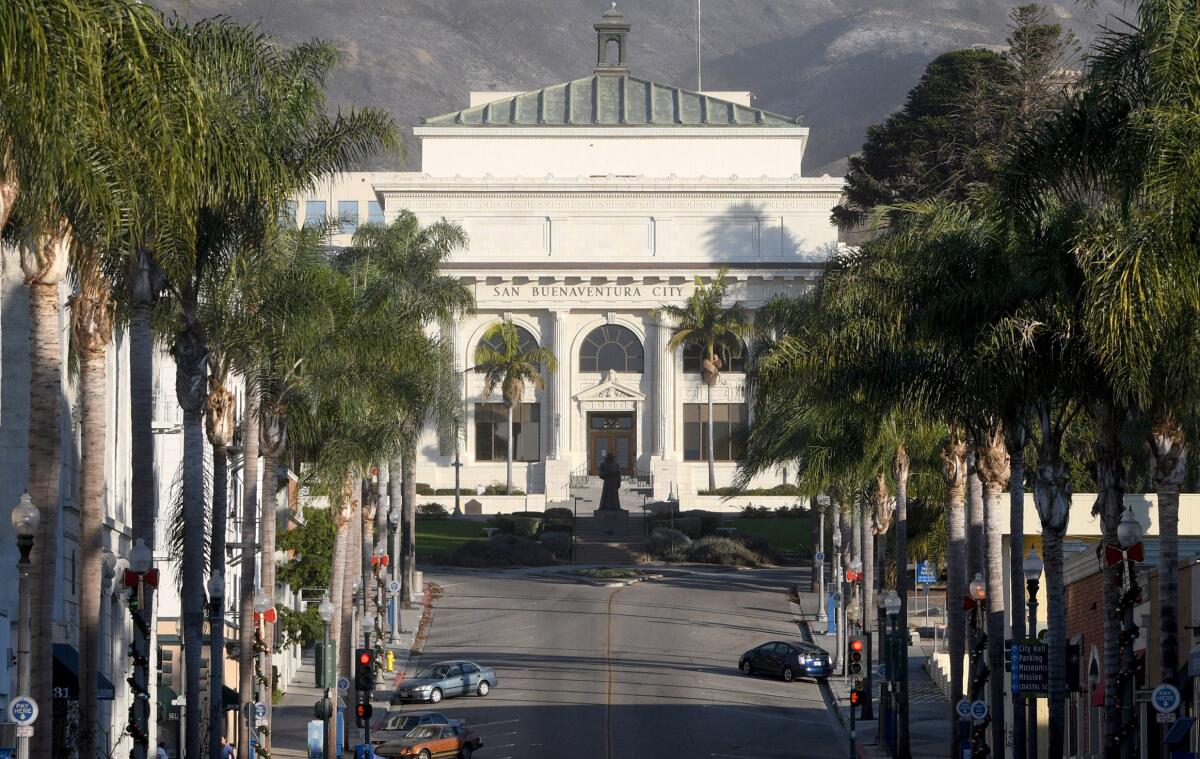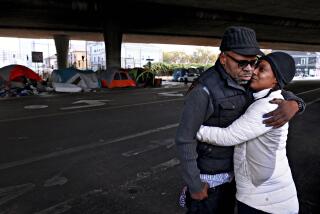Ventura County declares racism a public health crisis

The Ventura County Board of Supervisors has unanimously approved a resolution declaring racism a public health crisis.
Spurred by the recent killings of Ahmaud Arbery, Breonna Taylor and George Floyd — and by a nationwide history of discrimination and oppression against Black people, Indigenous people and other people of color — the resolution was the result of a months-long collaboration between county officials and community groups.
“This resolution demonstrates Ventura County’s commitment to the continuation of having difficult and uncomfortable conversations around race, justice and inequities,” Rabiah Rahman, vice president of Black Lawyers of Ventura County, said during last week’s meeting. “While it is not perfect, it is without a doubt a step in the right direction.”
The connection between racism and public health is well-documented, according to Dr. Stanley Patterson, who also spoke at the meeting. Patterson, a physician, said communities of color suffered from a systemic lack of access to affordable healthcare and health insurance, and from more insidious inequities, including a dearth of grocery stores and fresh produce markets that are commonly found in wealthier, more predominantly white neighborhoods.
As a result of these and other failures, Patterson said, Black, Latinx and Indigenous people have higher-than-average incidents of diabetes, cardiovascular disease, respiratory disease, auto-immune disease, depression and even suicide.
“The statistics are real,” he said. “They represent a problem that can only begin to be resolved with an inward reflection, understanding and embracing of our cultural differences and steps toward removing the barriers that prevent diversity, equity and inclusion where we live.”
It took years for the American Public Health Assn. to say that police violence threatens the health of not just victims and their families, but entire communities.
Patterson said stark differences in treatment by law enforcement are also affecting those same communities.
“One in every 1,000 Black men,” he said, “can be expected to be killed by police in their lifetime.”
The county’s resolution calls for a number of action items, including the establishment of an advisory group to work with law enforcement agencies to “foster meaningful discussions” and address public concerns relating to policing policies and procedures.
It also pledges to establish a working group of experts to study the delivery of healthcare to underserved populations, and to continue to incorporate diversity and equity training for county employees.
During one of the meeting’s more emotional presentations, Black Lawyers of Ventura County President Damon Jenkins read a letter he had written for his infant son.
“My lips quiver, my heart pounds, my breathing increases, my hands sweat and tears gather in my eyes when I imagine the first time you tell me you have been called the N-word, or the day you have been mistreated by law enforcement,” he said. “I will tell you that I begged our elected officials to protect you.”
Although Jenkins commended the county for its resolution, he also said community groups wanted even more action, including a recommendation that African American education be required in public schools, and that law enforcement advisory groups be run independently and have the power to make recommendations.
By a 5-0 vote Tuesday, the San Bernardino County Board of Supervisors adopted a resolution “affirming that racism [is] a public health crisis.”
Jenkins also said local law enforcement agencies should provide clearer reporting on claims of excessive force, implement the widespread use of body cameras, adopt de-escalation techniques and require better training to deal with people of different backgrounds.
“We continue to need more training, transparency and accountability,” he said.
And although the deaths of several Black residents spurred Ventura County’s conversation around racism, the COVID-19 pandemic has also had measurable negative health effects on communities of color, the resolution said.
According to the Centers for Disease Control and Prevention, Indigenous and Latino people are 2.8 times more likely to contract COVID-19, while Black people are 2.1 times more likely to die from it. All three communities experience 4.6 to 5.3 times more hospitalizations.
“Your ZIP Code is a stronger determinant of your health than your genetic code,” said Rigoberto Vargas, Ventura County public health director. “Place matters: the context, the environment, the situations presented to us. ... Those opportunities or lack of opportunities all matter.”
In passing the resolution, Ventura will join a growing list of places across the country that are declaring racism a public health issue. Twenty other counties and cities in California have made similar declarations, according to the American Public Health Assn., including Los Angeles.
Calling it a “high-priority policy item,” Ventura County Executive Officer Michael Powers said there had been more than 27 versions of the resolution to account for its evolution of language and ideas.
The final draft included input from the NAACP, Black Lawyers of Ventura County, the League of United Latin American Citizens, local law enforcement agencies, public health experts, the district attorney’s office and Ventura County Human Resources, he said.
And although the resolution passed quickly and unanimously, most present agreed there was work yet to be done.
“By approving and adopting this resolution, Ventura County is taking the first necessary step of acknowledging that we have a problem,” Rahman said. “There is no denying that we are a better and stronger community when the most vulnerable among us is elevated, celebrated and feels safe.”
More to Read
Sign up for Essential California
The most important California stories and recommendations in your inbox every morning.
You may occasionally receive promotional content from the Los Angeles Times.










